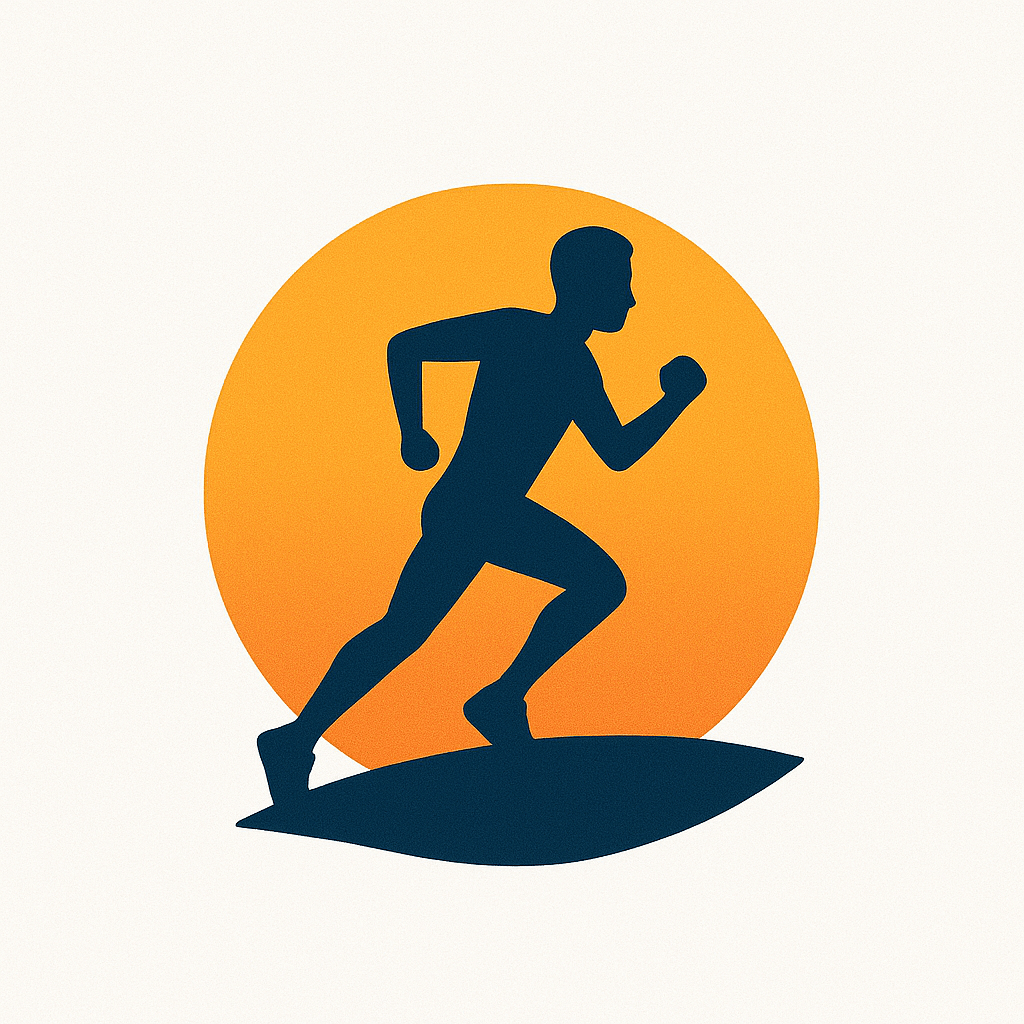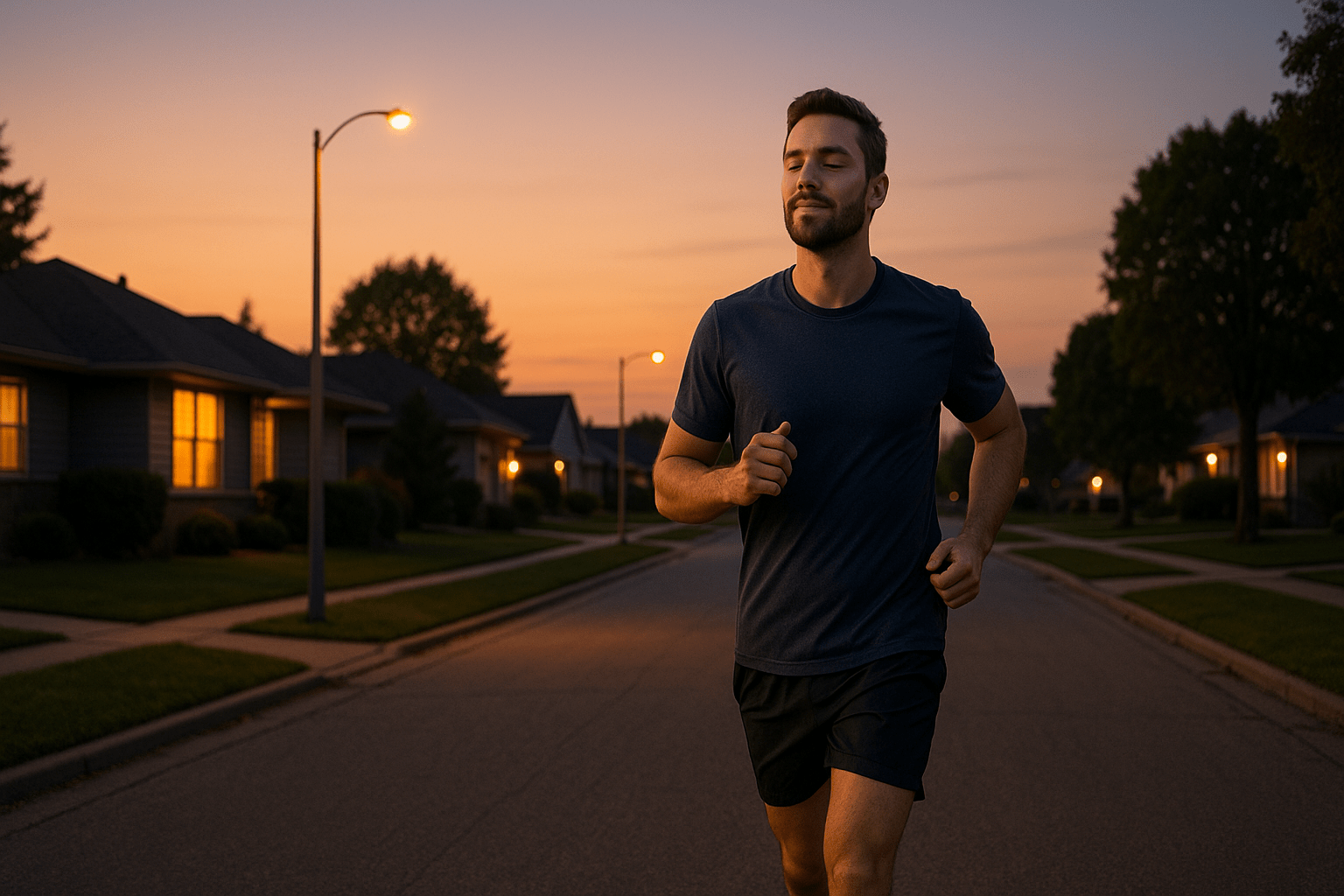When Sleep Stops Coming Easy
You lie down. You’re exhausted. But your mind won’t stop spinning.
You check the clock — again. You try breathing exercises, flipping the pillow, that sleep app everyone raves about.
Still wide awake.
If that sounds familiar, you’re not alone. Nearly 1 in 3 adults struggles with sleep issues. And while sleep aids and blue-light glasses offer band-aids, they don’t address the real, restless energy beneath the surface.
But here’s a secret: you can run your way to better sleep.
Yes — run.
Not to tire yourself out, but to calm your nervous system, rebalance your hormones, and create the ideal conditions for real, deep rest.
Let’s explore how running impacts your sleep — and how to build your own run-to-sleep rhythm starting today.
Why Sleep Matters More Than You Think
The Hidden Costs of Poor Sleep
Sleep isn’t just about avoiding yawns — it’s about recovery, resilience, and emotional stability.
When you don’t sleep well:
- You’re more anxious, reactive, and emotionally fragile
- Your memory, focus, and decision-making suffer
- Your immune system weakens
- Injury risk increases — especially for runners
Sleep is your body’s master recovery tool. And if you’re not protecting it, your stress, fitness, and even relationships can take the hit.
How Running Supports Holistic Recovery
Running boosts your health in dozens of ways — but sleep is one of the most underappreciated.
A consistent running routine can:
- Reset your circadian rhythm
- Reduce stress hormones
- Improve deep sleep cycles
- Help you fall asleep faster and wake up fewer times during the night
The result? You don’t just sleep longer. You sleep better — and wake up ready to run life, not just races.
The Science: How Running Improves Sleep
Exercise and Sleep Hormones
When you run, your body creates a cascade of chemical reactions that benefit your sleep:
- Melatonin, the hormone that signals it’s time to sleep, gets produced more naturally and in sync with your internal clock.
- Serotonin, your mood stabilizer, also helps regulate your sleep-wake cycle.
- Running lowers cortisol, the stress hormone that can spike in the evening and sabotage sleep.
Over time, your body learns to distinguish between “on” and “off” more clearly — and your sleep reflects that balance.
Timing Matters: When to Run for the Best Sleep
So… when should you run?
Here’s the truth: any time is better than no time. But for optimal sleep benefits:
- Morning runs can help reinforce your natural circadian rhythm by exposing you to sunlight and signaling “wakefulness” early.
- Afternoon runs are great for reducing stress and giving your body time to cool down before bed.
- Evening runs can still work — but intense workouts too close to bedtime may temporarily spike adrenaline and core temperature, delaying sleep.
If you run at night, finish at least 90 minutes before bed, and opt for a gentler pace.
Building a Run-to-Sleep Routine
How Often, How Hard, and How Long to Run
You don’t need to train like a marathoner to sleep like a baby.
Sleep improves most when:
- You run 3–5 times a week
- You include mostly easy, aerobic-paced runs (Zone 2)
- You stay consistent, not extreme
In fact, studies show that even 30-minute runs can improve sleep quality — especially when repeated over weeks.
Running helps your body burn excess energy and triggers the right hormonal balance for rest.
Pre-Bed Rituals and Post-Run Wind-Downs
Want to supercharge your sleep even more? Pair your running with a calming evening routine.
Here’s a sample Run-to-Rest flow:
- Afternoon run (easy pace, 20–40 minutes)
- Light stretching or foam rolling
- Warm shower or bath to cool body temperature afterward
- 30-minute screen-free window before bed
- Deep breathing or light journaling
- Bedtime
It’s not just what you do — it’s how you transition.
Create signals to your brain that say, “It’s time to rest.”
Real People, Real Rest
Tomas, a 29-year-old graphic designer, used to lie awake for hours. “My mind was just too wired,” he shares. “I’d go over client emails, bills, everything.”
After adding short, evening jogs to his week, he noticed something shift. “I was falling asleep faster. But more than that — I wasn’t waking up tired.”
Angela, a mother of two, runs three times a week in the early morning. “I used to be exhausted by 2 p.m., but still couldn’t fall asleep until midnight. Now? I’m asleep before 10 and actually rested by sunrise.”
These aren’t outliers. This is what happens when your body and brain finally learn to power down — the way nature intended.
The Finish Line: Sleep Deeper, Wake Stronger
You don’t need to chase sleep like it’s some elusive prize.
You just need to move — gently, regularly, intentionally — and let your body remember what it’s built to do.
Running can be your reset switch. Your evening exhale. Your morning anchor.
And the best part? Better sleep will make your runs feel easier too. It’s a positive feedback loop — one that starts with a single step.
So if you’re tired of being tired…
Try lacing up.
Let your breath steady. Let your stress unravel. And let sleep find you, mile by mile.






Leave a Reply